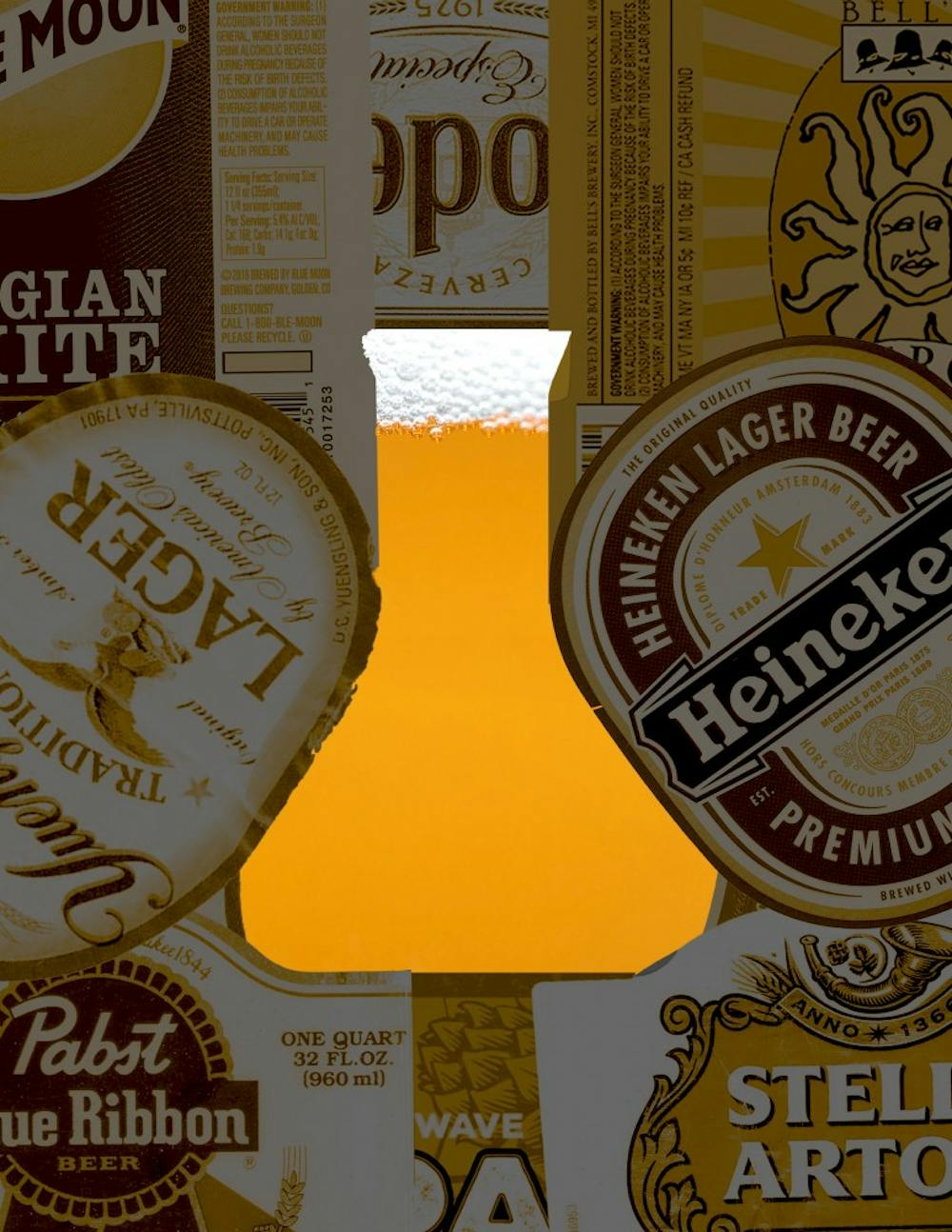It's Wednesday night, and some Miami students are cracking open a few beers. It's a typical college scene, except for the location: a chemistry laboratory.
"Principles in Fermentation," first offered as a class for Fall 2016, is cross-listed in chemistry, microbiology and chemical, paper and biomedical engineering. The course emphasizes the science of fermentation, with the goal of teaching students how to apply the theory they've learned in class.
The class was created after a Miami alumnus, Dave Dafoe, reached out about bringing Miami students to Moonshine University, a distilling school he founded in Louisville, KY. Christopher Makaroff, Dean of the College of Arts and Sciences, approached Michael Crowder and Luis Actis, respective chairs of the Department of Chemistry and Biochemistry and the Department of Microbiology, about Dafoe's interest. The three decided to offer a course in fermentation in the fall, and then have the students attend Moonshine University in the winter.
Dafoe is currently offering tuition-free instruction over J-Term to Miami students who have completed the fermentation class. The courses typically cost thousands of dollars per student.
"Principles in Fermentation" includes lectures on the details of fermentation, detailing the mechanisms of proteins and specific enzymes. The lecture also covers a variety of food products that involve fermentation: how yeasts work, how cheeses and fermented meats are made, how beer is brewed and how spirits are fermented.
But the class isn't all lecture. Students perform experiments with real beers. In lab, students measure the carbon dioxide produced by yeast, analyze beers for color and cloudiness and determine the amounts of bitterness compounds in the beer.
"When [the students] look at a bottle of beer now, there's all these statistics on the side and they know what every component is," said Crowder.
The class also samples beers in order to taste the differences they are testing in the lab, so students must be 21 or older to take the class.
This semester, the class will visit MillerCoors' Trenton, OH, brewery and Municipal Brewery, a craft brewery in Hamilton, where students will see the beer-making process behind-the-scenes and talk to brewing experts.
The interdisciplinary nature of the course is its most unique aspect. Breweries send the class real problems to solve on their behalf. The students are then divided into groups containing members with different majors to analyze the problem from different perspectives and present their solutions.
The enthusiasm of the faculty involved in the course was contagious, Crowder said.
"Other faculty members were so excited about this course, they started asking, 'Can I be part of this?'" said Crowder.
Senior Shawn Dougherty, a chemical engineering major, took the class last fall. He remembers being impressed by the science behind creating the beers and the enthusiasm of the faculty.
"The professors were there to have fun," said Dougherty. "I really felt like the professors enjoyed the class as well as the students, and that made the class really fun, because they came in every day and learned something as well."
In response to student feedback and Miami's ongoing issues with high-risk student drinking, the class now includes lectures on the psychology and biology of drinking and addiction.
"Alcohol production is actually a science marvel," said Crowder. "We are trying to instill an appreciation, but also there needs to be a concern that alcohol [consumption], if too much, can be quite problematic."
Crowder and Actis have big dreams for the future of the class. They would like to start by adding a prerequisite course and eventually extend to creating a series of courses that will cumulate in the receipt of a Certificate in Fermentation Sciences.
Ultimately, they would also like to set up a beer, liquor and wine analysis lab run by students. The lab would provide students with experience, supply companies with an analysis service and give the school a new revenue source.
But for now, Crowder and all the other faculty involved in the class believe even taking one course in fermentation will open doors for students.
"The craft brewing industry is exploding right now," said Crowder. "There is going to be such a high demand for the training in one class that they got here."
Jessica Cleland, a chemical engineering senior currently taking the class, is excited about what the rest of the semester will bring.
"I'm very excited about the career potential with this kind of class," said Cleland. "And how it's going to prepare me for the field, and the new ideas and perspectives it's going to give me in the future."
franzpl@miamioh.edu

